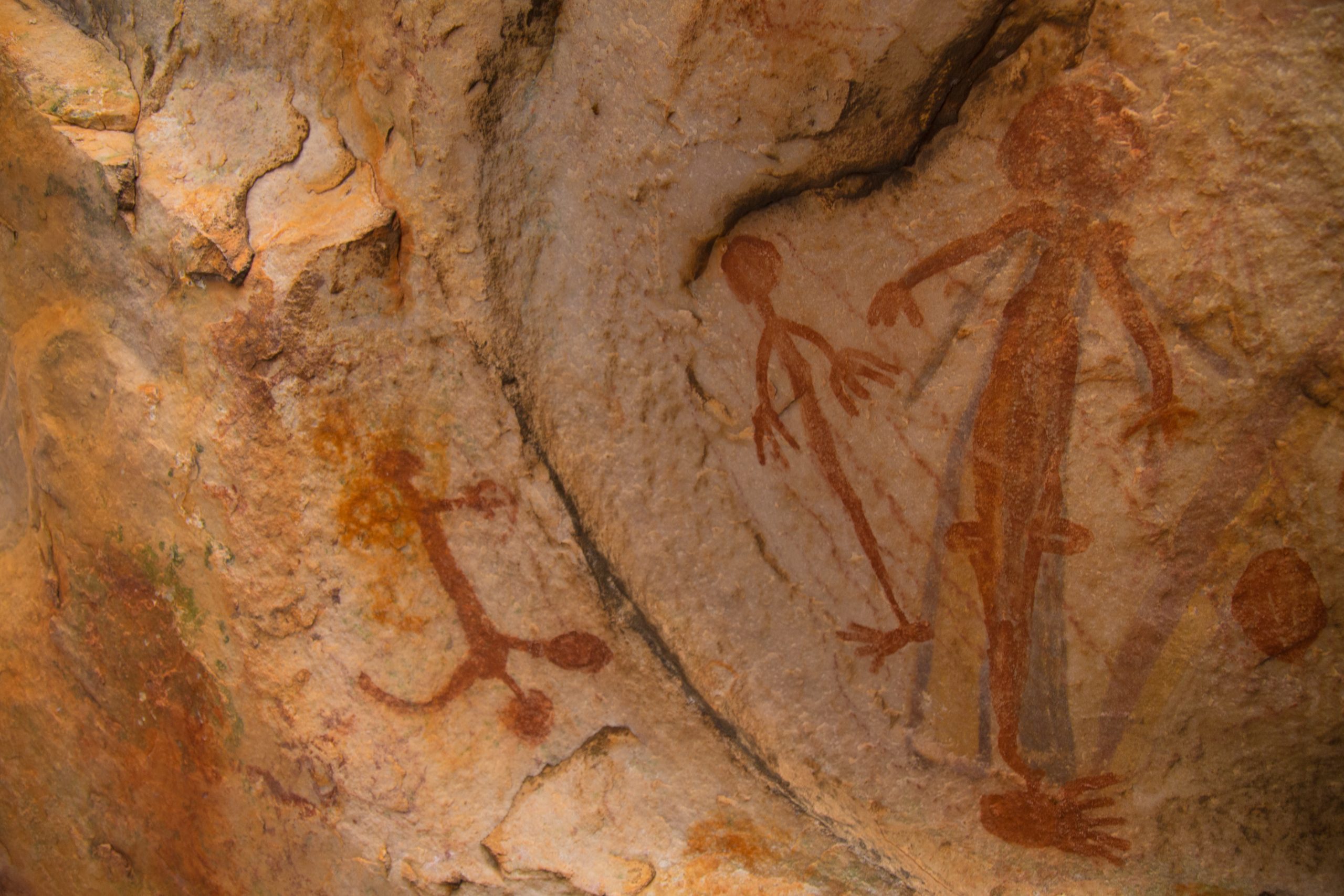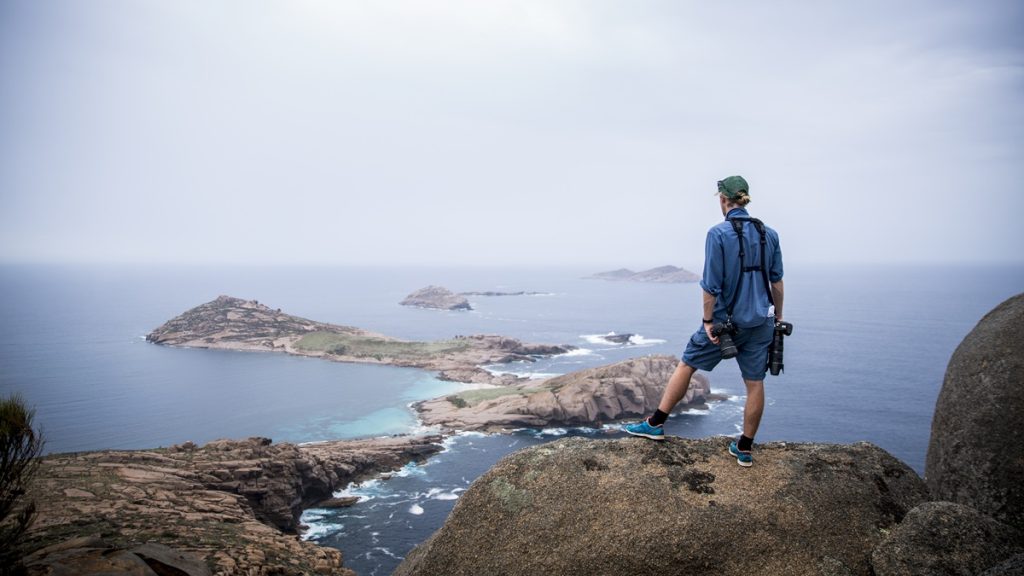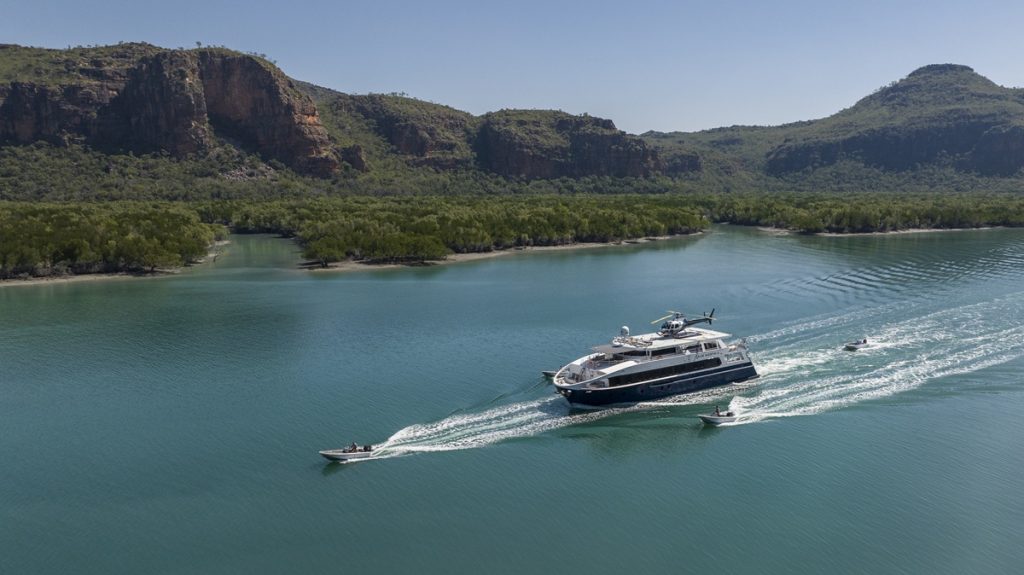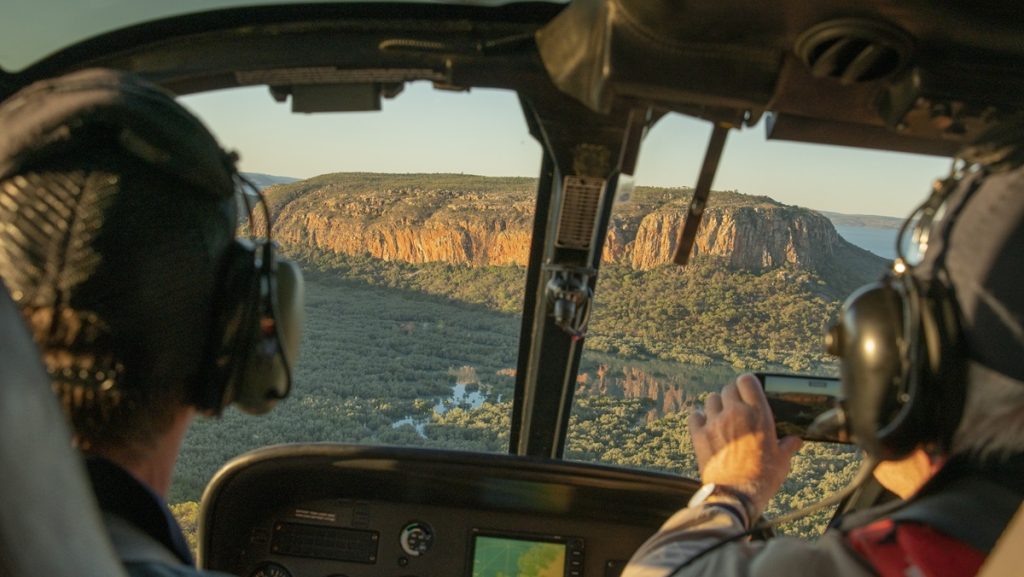Swift Bay is the kind of place that makes you feel like an explorer. Cliffs tower over the water, rock shelters hide ancient art, and every turn feels like you’re discovering something new.
One moment you’re staring up at Wandjina figures painted thousands of years ago, the next you’re pulling a giant black-lip oyster straight off the rocks. The fishing is unreal, the landscapes are wild, and there’s not a single sign of modern life in sight.
There aren’t many places left like this, which makes it all the more special.
Where is Swift Bay
Swift Bay is hidden along the remote Kimberley coast in Western Australia, part of the Bonaparte Archipelago. It sits roughly 12 kilometres west of the Mitchell River, surrounded by rugged sandstone cliffs and rock shelters that have been shaped by time.
This area has been home to the Wunambal Gaambera people for tens of thousands of years and holds some of the most significant Indigenous rock art in the Kimberley.
How to get to Swift Bay?
By air
You can fly over Swift Bay on a scenic flight or take a helicopter ride straight from our cruise. Seeing it from above gives you a whole new perspective—winding rivers, towering cliffs, and untouched islands as far as the eye can see. Not many get to say they’ve experienced it like this.
Learn more about our onboard helicopter experience.
By water
The best way to experience Swift Bay up close is on a Kimberley cruise. Cruising through the Bonaparte Archipelago, you’ll weave between islands, explore hidden rock art galleries, and take in the dramatic sandstone formations that surround the bay. The journey itself is part of the adventure, with changing tides revealing different parts of the coastline and wildlife appearing at every turn.
Learn more about being on board True North and True North II.
Best time to visit Swift Bay
Winter (June – August)
This is the best time to explore the Kimberley. The dry season brings clear skies, warm days, and low humidity, making it perfect for cruising, fishing, and exploring rock art sites. The weather is comfortable, and wildlife is easy to spot.
Autumn (March – May)
The wet season is coming to an end, so the waterfalls are still flowing strong, and the landscape is lush and green. It’s warm and humid, but the crowds haven’t arrived yet, making it a great time for a quieter experience.
Spring (September – November)
Temperatures start rising, and the waterfalls slow, but the fishing is excellent. Barramundi are feeding before the wet season, and wildlife is still active, though the heat makes early mornings and late afternoons the best time to explore.
Summer (December – February)
The wet season brings extreme heat, high humidity, and heavy rainfall. Rivers flood, waterfalls return in full force, and the landscape is at its most dramatic. But with these conditions, most travel operators, including cruises, don’t run during this time.
Top things to see & do in Swift Bay
Wandjina & Gwion Gwion Rock Art
Swift Bay is home to some of the oldest and most significant Indigenous rock art in the Kimberley. Wandjina figures, with their wide eyes and halo-like headdresses, are said to bring the rain, while the much older Gwion Gwion (Bradshaw) paintings depict slender, dynamic human figures. These ancient artworks have been here for thousands of years, telling stories that have been passed down for generations.
Giant black-lip oysters
Scattered along the rocky shoreline, these massive oysters are hard to miss. At low tide, you can spot them clinging to the rocks, their dark shells blending into the sandstone. They’re a prized delicacy, and if we’re lucky enough to gather some, you might even get to try them onboard True North, freshly shucked and served straight from the Kimberley waters.
Winyalkin Island
A short trip from Swift Bay, Winyalkin Island is another incredible spot filled with Indigenous rock art. It’s also a great place for wildlife spotting, with turtles, seabirds, and even the occasional dugong making an appearance. The island’s rugged beauty and cultural significance make it well worth the visit.
Fishing
There’s no shortage of fish in Swift Bay. Barramundi, trevally, and mackerel are everywhere, and if you drop a line, chances are you’ll hook into something good. Catching it is one thing, but eating it fresh? That’s a whole other level.
Tips for exploring Swift Bay
Stay crocwise
Saltwater crocodiles are everywhere in these waters. On True North, the crew keeps a close watch, but if you’re exploring on your own, don’t take risks. Stay well back from the water’s edge, and never assume a spot is safe just because it looks quiet.
Pack smart for the Kimberley
To be honest, it’s going to be hot no matter when you visit. We recommend bringing lightweight clothing, sun protection, and a good hat to keep you well protected and comfortable.
Respect cultural sites
The rock art here has been around for thousands of years, and with the right care, it will last for thousands more. Avoid touching the paintings or disturbing the sites, so future generations can experience them just as they are today.
A Kimberley cruise like no other
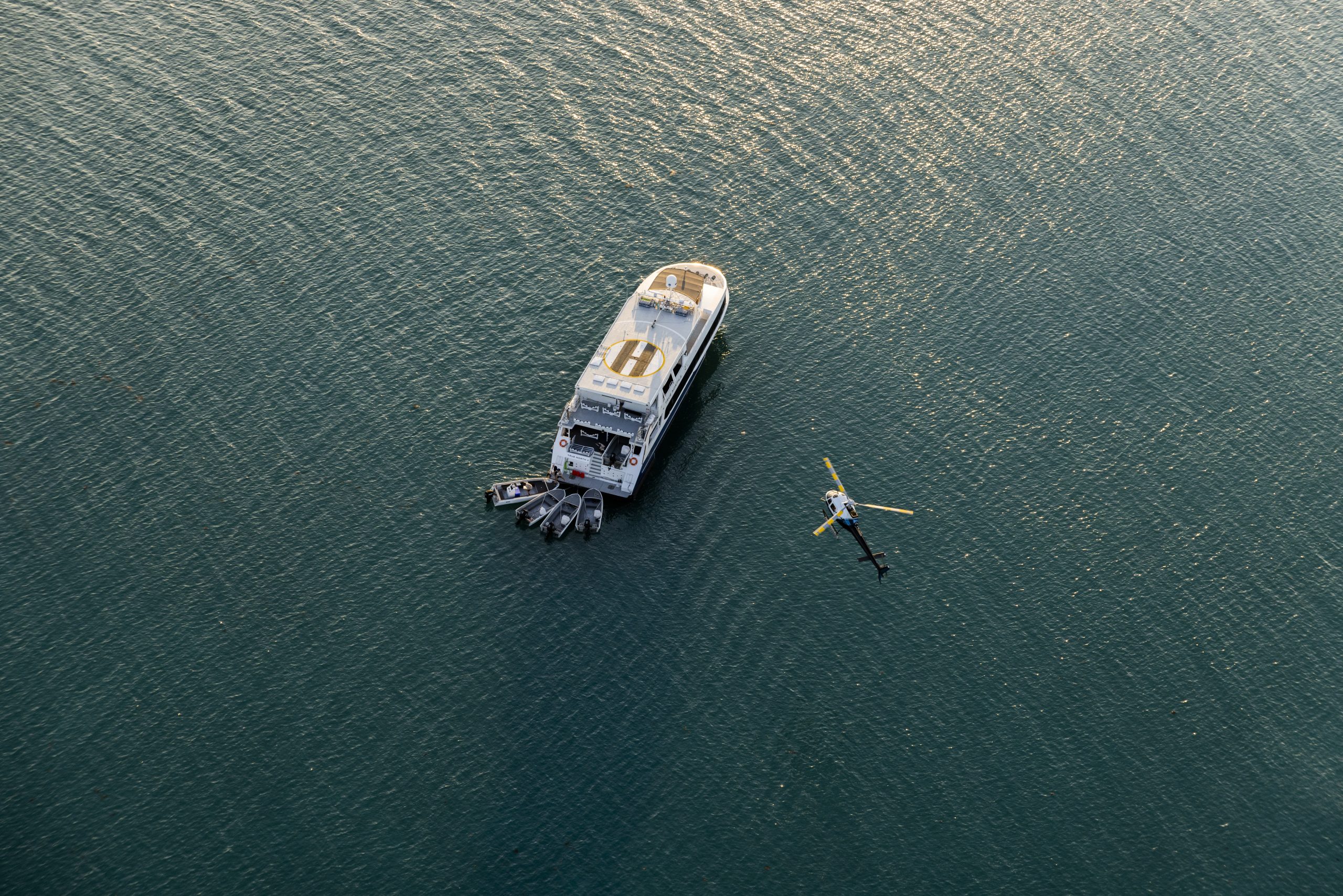
Swift Bay is one of the most remote and culturally rich destinations in the Kimberley. From ancient rock art to incredible fishing and landscapes that feel untouched by time, it’s a place few get to see. The best way to experience it all is on a Kimberley cruise, where you can take in the scenery, uncover hidden wonders, and explore places that most travellers will never reach.
Check out our upcoming cruise departure dates and start planning your next adventure.
